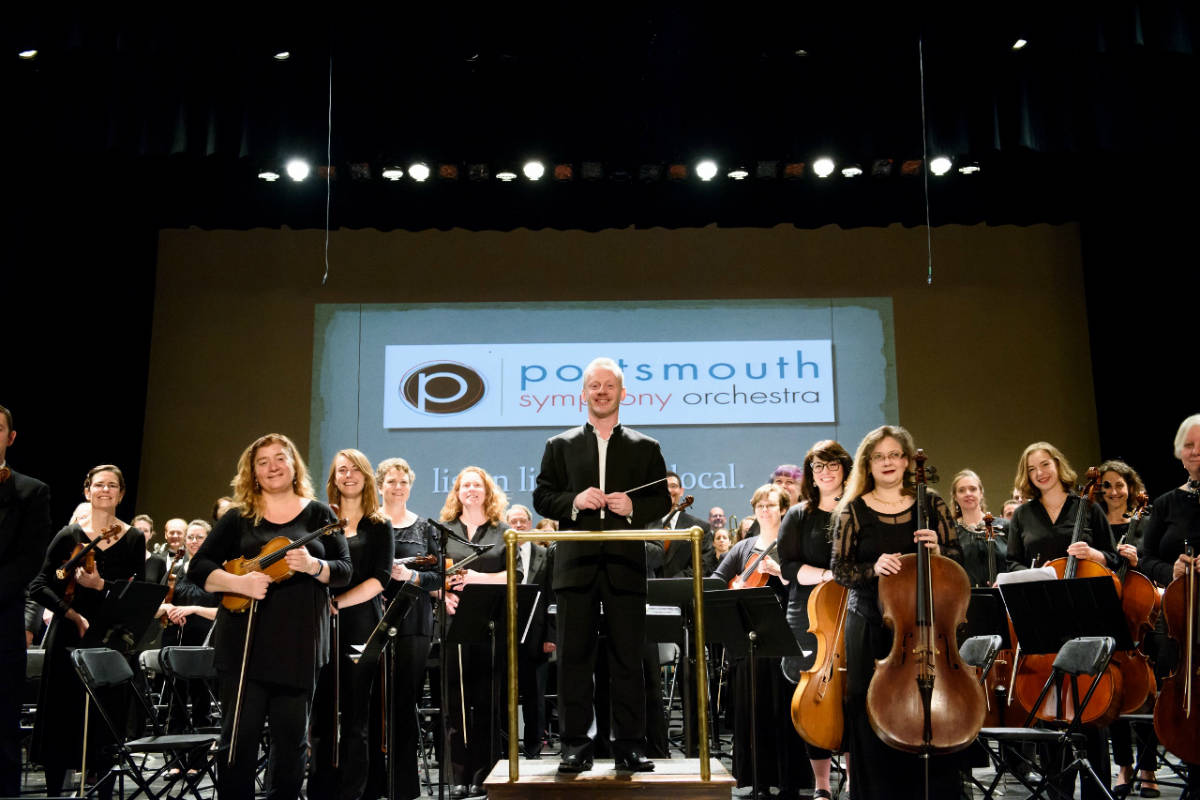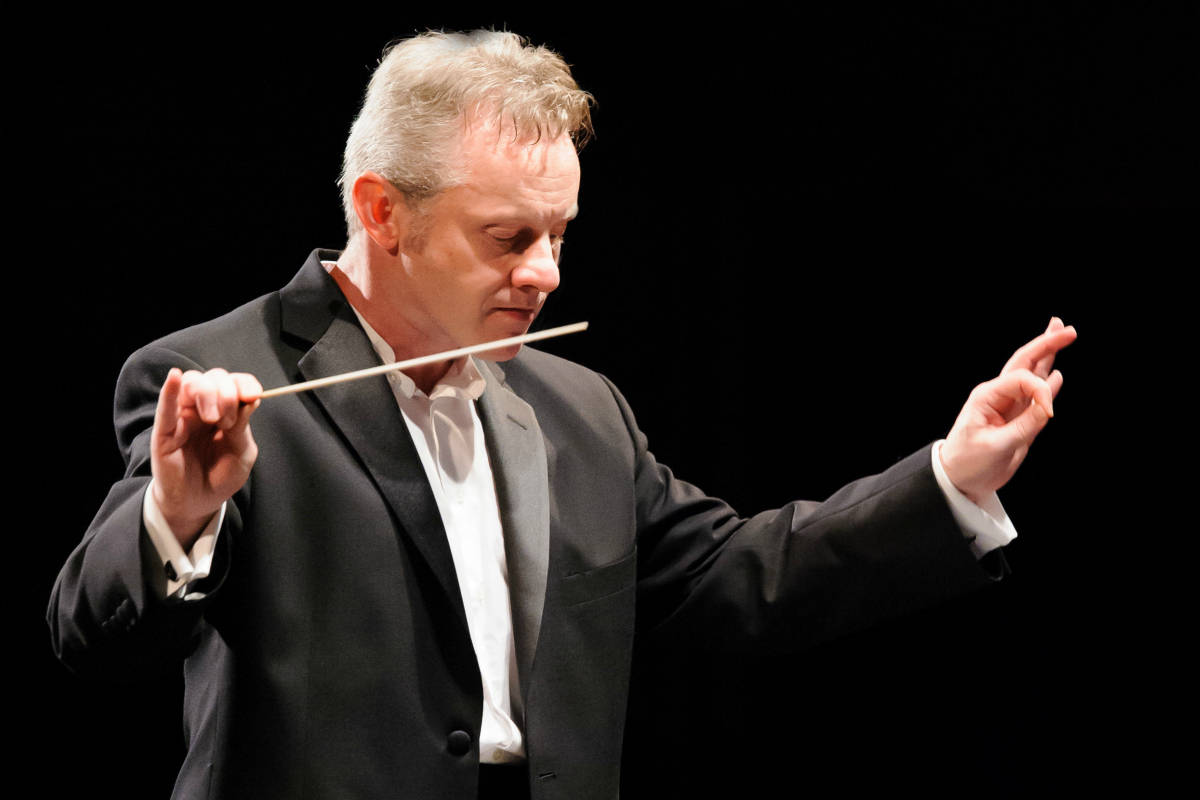John Page leads the Portsmouth Symphony Orchestra with a vision for creating the people’s orchestra in New Hampshire.
Is classical music dying? Not if John Page, music director of the Portsmouth Symphony Orchestra in Portsmouth, New Hampshire, can help it.
Page wants to make classical music relevant to modern audiences. Since 2011, he’s led the PSO, a semi-professional orchestra comprised of lawyers, doctors, educators, students—even an elk farmer. Page believes the success of the PSO lies in building community, so orchestra members are almost exclusively from New Hampshire. Their performances draw attendees from southeast Maine, coastal New Hampshire, and down into northeastern Massachusetts.
“In an age where music education is being decimated, music must be linked closely to community and education,” Page says. “If you’re not touching those things as a musician, you’re not making the impact that you should. Symphony orchestras don’t have a God-given right to exist.”
Part of Page’s enthusiasm comes from personal experience. Music was “everywhere” when he was growing up in 1970s Northern Ireland, especially during “The Troubles,” when state-run social programs used music to bring children together. “It was one of the only places where Catholics and Protestants came together,” he remembers. “All schoolchildren were educated in music. That’s really where my music education started.”

John Page, Portsmouth Symphony Orchestra, photo by Virgil Mehalek
Page’s original passion was voice; he later started playing French horn, piano, and organ. It wasn’t until he was pursuing a masters degree at University College Dublin that he took up the baton. “I filled in for a conductor who was taking a sabbatical,” he says. “He asked if I had experience (I didn’t) and I said, ‘Yes.’ Then I told my friends in the orchestra that their job was to make me look good.”
Page has been conducting ever since. He came to the U.S. in 2003 to apprentice with Benjamin Zander, the charismatic conductor of the Boston Philharmonic Orchestra and the Boston Philharmonic Youth Orchestra (among the communication techniques Page learned from Zander are his lively pre-concert talks to audiences). He later taught at the New England Conservatory and Boston University. Married and a father of two, he balances Monday night rehearsals with the PSO with his day job conducting four orchestras a week as director of orchestral activities at Tufts University. That’s in addition to guest conducting orchestras in Ireland and around the U.S.
The PSO performs four major concerts annually at The Music Hall, Portsmouth, including two holiday concerts in December; they also present chamber music performances at the Kittery Dance Hall in Maine. The organization forges community partnerships (including a performance of Swan Lake with an area dance school during the Prescott Park Arts Festival), visits area schools, and participates in music education outreach whenever possible.
Among Page’s, and the PSO’s, greatest community triumphs were two sold-out performances this spring of Beethoven’s iconic Symphony No. 9, bringing together four area choruses and soloists at Portsmouth High School. It was a big moment: 1,600 people attended. Most had never seen a PSO performance.
Working with people, Page believes, is the key to being a successful conductor. “You really have to watch and listen,” he says. “Winning people over personally is half the battle.”










